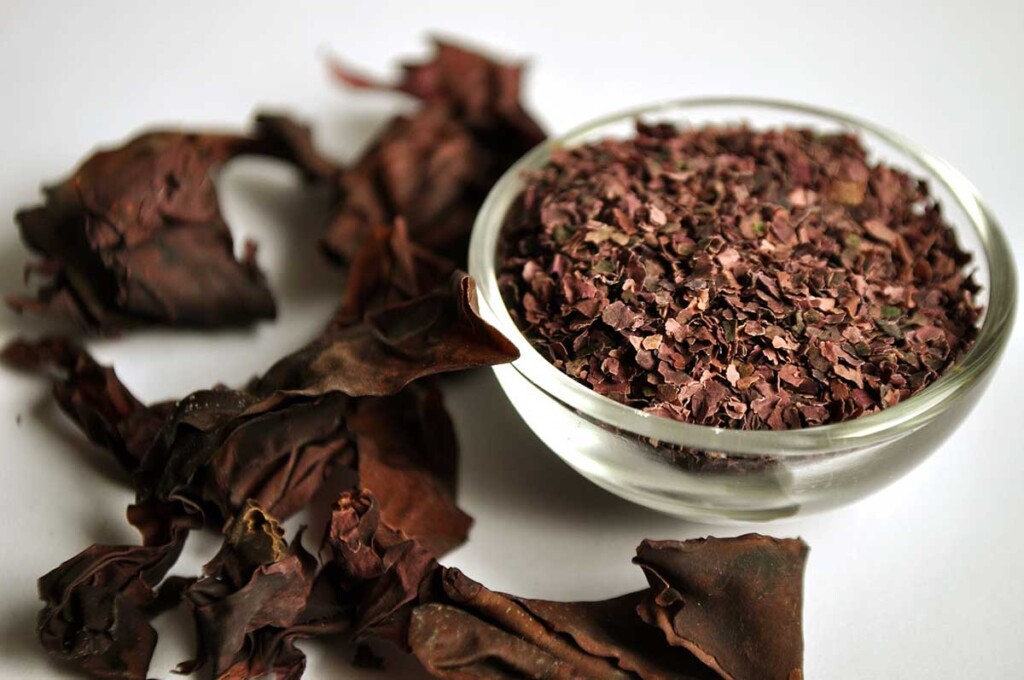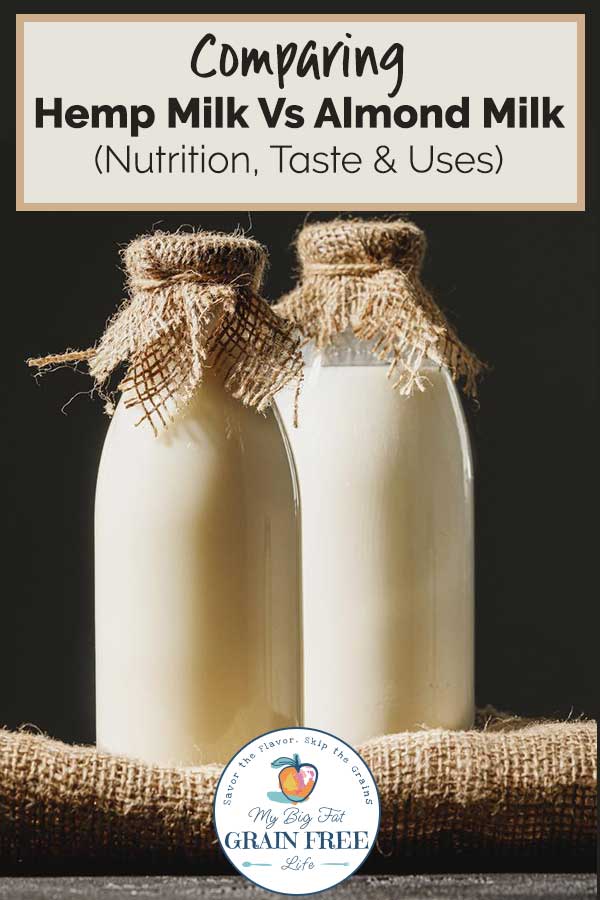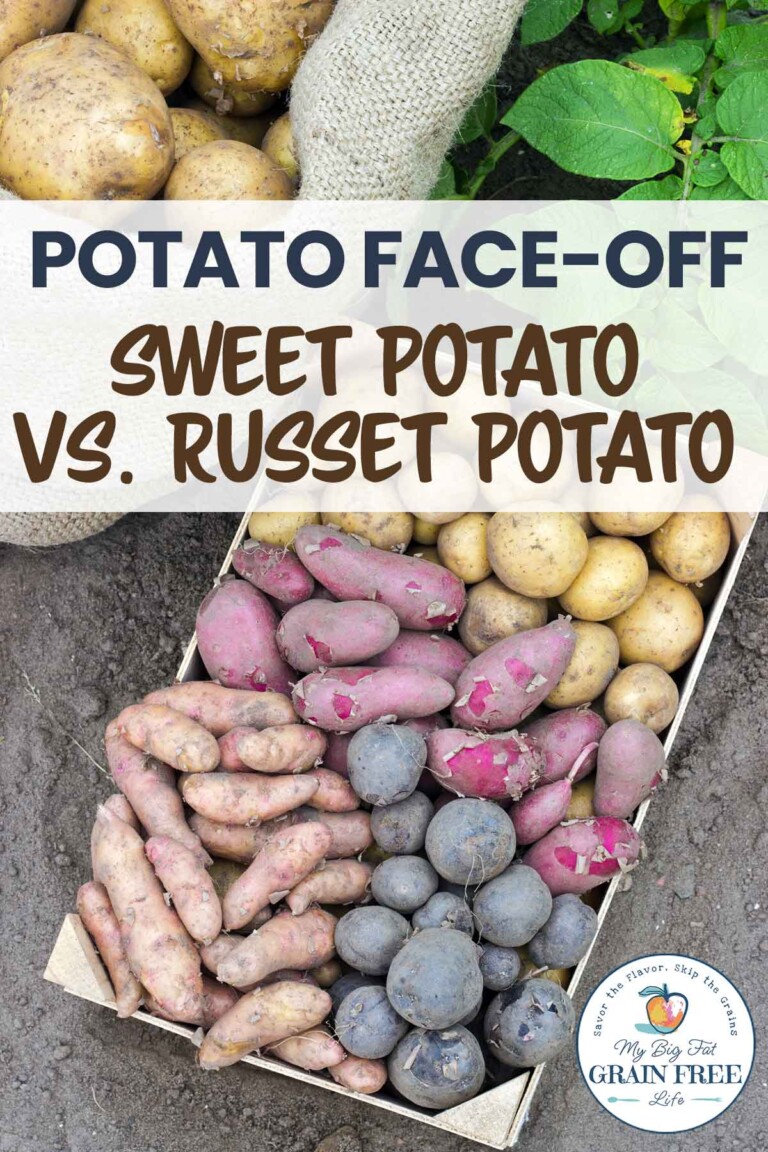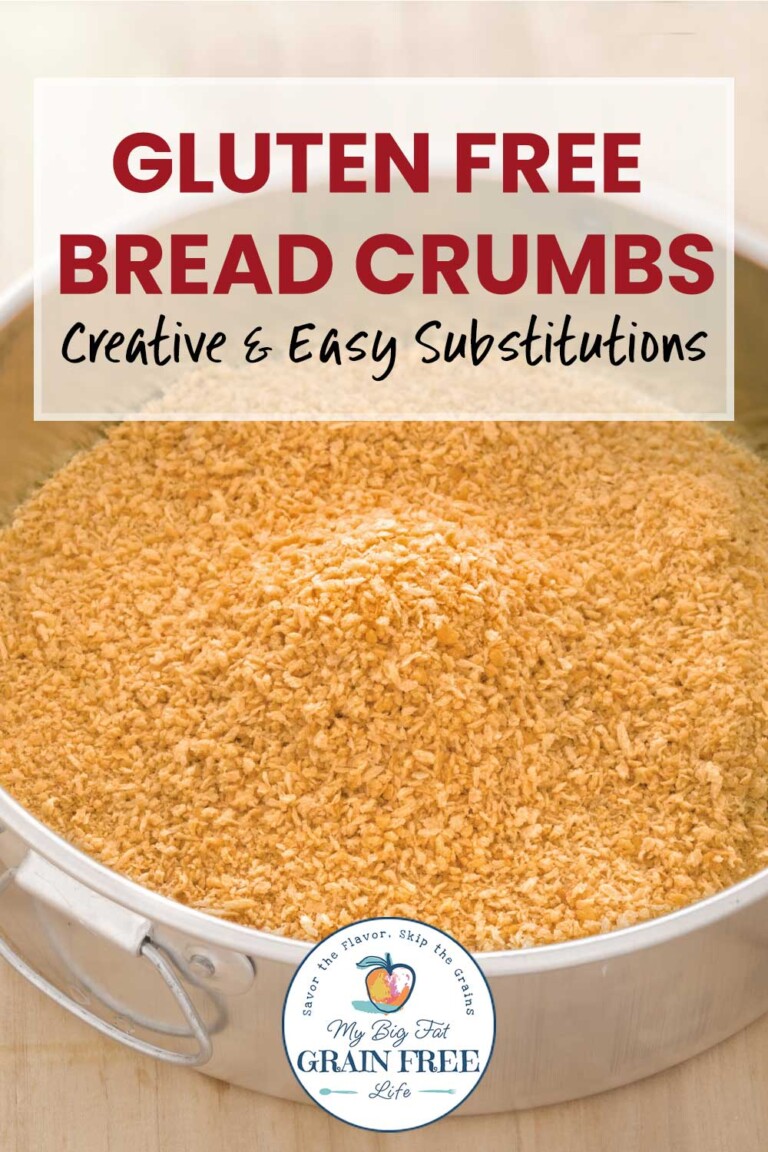20 Health Benefits of Dulse (Bacon-flavored Seaweed)
This post may contain affiliate links. If you make purchase after clicking a link, I may receive a commission at no extra cost to you.
Last Updated on December 1, 2023
Are you aware of the nutrition found in sea vegetables, like dulse seaweed? There are a lot of health benefits of dulse, so you might want to consider adding this bacon-flavored seaweed to your diet!

Health Benefits of Dulse
Dulse, a type of red algae, is gaining popularity due to its numerous health benefits and versatile uses. Let’s take a look at what dulse is and its nutritional profile, and explore all the health benefits of adding it to your diet.
What is Dulse?
Dulse, scientifically known as Palmaria palmata, is a type of edible seaweed that grows along the coasts of the Northern Atlantic and Pacific Oceans. It has been a staple in the diet of many coastal communities for centuries, particularly in Ireland and Scotland.
In addition to its health benefits, dulse has a long history of culinary use. In Ireland, it has been traditionally used in soups, stews, and salads, adding a unique umami flavor and a bold touch of color. In Scotland, dulse is commonly eaten in the form of seaweed snacks, often straight from the bag!
As a type of seaweed, dulse is a sustainable food source that requires no fertilizers, pesticides, or freshwater to grow. Its cultivation can even help mitigate the negative impacts of aquaculture by absorbing excess nutrients and reducing water pollution.

Flavor and Appearance of Dulse
Dulse has a unique flavor that is often described as savory, slightly salty, and with a hint of umami. It adds depth and complexity to dishes, making it a popular ingredient in many cuisines.
It’s known for its deep red color, which intensifies when dried. It has a delicate, thin, and slightly chewy texture. Here’s the best part – these seaweed flakes have a delightful smoky taste reminiscent of everyone’s favorite: bacon.

Health Benefits of Dulse
Not only is dulse nutritious, but it also offers a range of potential health benefits. Some studies suggest that the antioxidants found in dulse may have anti-inflammatory properties, which could help protect against chronic diseases such as heart disease and cancer.
Now, let’s explore the impressive health benefits that dulse has to offer:
1. Rich In Essential Nutrients
This red seaweed is packed with vitamins and minerals such as vitamin C, vitamin E, iron, iodine, potassium, and magnesium. These nutrients support overall health and well-being.
2. Boosts Thyroid Function
Dulse seaweed is a natural source of iodine, which is vital for proper thyroid function. Consuming dulse can help maintain a healthy metabolism and regulate hormone production.
3. Supports Heart Health
Dulse contains omega-3 fatty acids that promote cardiovascular health by reducing inflammation and improving blood flow.
4. Provides Antioxidant Protection
This nutritious seaweed is rich in antioxidants that help neutralize harmful free radicals in the body, protecting against oxidative stress and cell damage.
5. Enhances Brain Function
The omega-3 fatty acids found in dulse are beneficial for brain health and cognitive function, supporting memory, concentration, and overall mental clarity.
6. Supports Healthy Digestion
Dulse contains dietary fiber that promotes regular bowel movements and helps maintain a healthy digestive system.
7. Improves Immune Function
The vitamins and minerals present in dulse seaweed strengthen the immune system, helping the body fight off infections and diseases more effectively.
8. Anti-Inflammatory Properties
Dulse contains bioactive compounds that have anti-inflammatory effects on the body, reducing the risk of chronic inflammation-related conditions.
9. Promotes Healthy Skin
The antioxidants in dulse help protect the skin from damage caused by environmental factors and aging processes, promoting a healthy complexion.
10. Supports Weight Management
Dulse seaweed is low in calories but high in nutrients and fiber, making it a great addition to a balanced diet for weight management.
11. Improves Bone Health
Dulse contains calcium, magnesium, and other minerals essential for maintaining strong bones and preventing osteoporosis.
12. Enhances Detoxification
Dulse seaweed contains compounds that support the body’s natural detoxification processes, aiding in the elimination of toxins and heavy metals.
13. Supports Eye Health
Dulse is a good source of vitamin A and other antioxidants that promote healthy vision and protect against age-related eye diseases.
14. Regulates Blood Sugar Levels
The fiber content in dulse helps regulate blood sugar levels, making it beneficial for individuals with diabetes or those at risk of developing the condition.
15. Boosts Energy Levels
Dulse seaweed is rich in B vitamins, which play a crucial role in energy production, helping combat fatigue and improve overall vitality.
16. Promotes Cardiovascular Health
Dulse contains potassium, which helps regulate blood pressure and maintain heart health.
17. Supports Hormonal Balance
The iodine content in dulse supports the production of thyroid hormones, contributing to overall hormonal balance in the body.
18. Improves Liver Function
Dulse seaweed supports liver health by promoting detoxification processes and reducing oxidative stress on this vital organ.
19. Anti-Cancer Properties
Some studies suggest that certain compounds found in dulse may have anti-cancer effects, potentially inhibiting the growth of cancer cells.
20. Supports Healthy Aging
The nutrients and antioxidants present in dulse seaweed help protect against age-related damage and promote longevity.

Dulse Nutrition Profile
One of the fascinating aspects of dulse is its rich nutritional profile. It is loaded with essential vitamins and minerals, including vitamin C, vitamin A, iron, and potassium. In fact, dulse is considered to be one of the best plant-based sources of iron, making it an excellent choice for vegetarians and vegans.
Here is a breakdown of its nutritional profile:
- Rich source of vitamins such as vitamin C, vitamin E, vitamin K, and various B vitamins including thiamine (B1), riboflavin (B2), niacin (B3), pyridoxine (B6), and folate (B9).
- Good source of iron, which is important for the production of red blood cells and overall energy levels.
- Abundant in other minerals like iodine, potassium, magnesium, calcium, manganese, phosphorus, and zinc.
- Contains significant amounts of iodine, which is essential for proper thyroid function.
- Contains antioxidants that help protect the body against oxidative stress and reduce inflammation.
- High in fiber, promoting healthy digestion and preventing constipation.
- Provides a good dose of omega-3 fatty acids, which are beneficial for heart health and reducing inflammation.
Trace Minerals in Dulse
Dulse seaweed contains several trace minerals, including:
- Iron
- Potassium
- Calcium
- Magnesium
- Manganese
- Zinc
- Copper
Macronutrients in Dulse
- Carbohydrates: Dulse contains carbohydrates, which are an essential source of energy for the body.
- Protein: Dulse provides a good amount of protein, which is important for muscle growth and repair.
- Fat: Dulse contains a small amount of fat, including omega-3 fatty acids, which have numerous health benefits.
Where is Dulse Found?
Dulse can be found growing abundantly on rocks and other submerged surfaces along the rocky coastlines of the Northern Atlantic and Pacific Oceans. Its natural habitat is the intertidal zone, where it thrives in the cold, nutrient-rich waters.
Along the Northern Atlantic coastline, dulse can be found in countries such as Ireland, Scotland, Iceland, and Canada. In these regions, the rocky shores provide the perfect environment for dulse to attach itself and grow. The crashing waves and constant exposure to seawater create the ideal conditions for this hardy seaweed to flourish.
The Pacific coastline is also home to dulse, with notable locations including parts of Alaska, Washington, Oregon, and British Columbia. Here, the rugged and rocky shores offer ample opportunities for dulse to thrive, clinging to the rocks and absorbing the nutrients from the surrounding seawater.
Harvesting Dulse
Harvesting dulse is a practice that dates back centuries. Traditionally, it was collected by hand during low tide when the seaweed is easily accessible. Harvesters would carefully detach the dulse from the rocks, ensuring that the plant remains intact and undamaged.
However, with the growing demand for dulse and the need for sustainable practices, cultivation of this seaweed has become increasingly popular. Specialized seaweed farms have been established to ensure a steady and controlled supply of dulse. These farms mimic the natural conditions required for dulse to grow, providing the necessary nutrients and cold water to support its development.
Seaweed farming not only helps meet the demand for dulse but also contributes to the preservation of natural dulse populations. By cultivating dulse in controlled environments, the pressure on wild populations is reduced, allowing them to thrive and maintain their ecological balance.

Ways to Use Dulse
There are numerous ways to incorporate dulse into your diet, adding both flavor and nutrition to your meals. It can be eaten raw, dried, or cooked.
Here are some ideas:
- Add sea lettuce flakes to your favorite salad or soup for a burst of umami flavor.
- Add dulse powder to increase the health benefits of smoothies.
- Use dulse as a topping for roasted root vegetables or stir-fried dishes.
- Bake dulse into homemade bread or crackers for a unique twist.
- Make dulse chips by roasting thin strips of dulse in the oven until crispy.
Other Healthy Sea Vegetables
Sea vegetables, also known as seaweeds, are rich in vitamins, minerals, and antioxidants, making them an excellent addition to a healthy diet.
Here are some other nutrient-dense sea vegetables:
- Spirulina: Spirulina is a nutrient-rich blue-green algae that is packed with essential vitamins, minerals, and antioxidants. It is often considered a superfood due to its high protein content and potential health benefits. There are two types: blue spirulina and green spirulina.
- Nori: Nori is a type of red algae commonly used to wrap sushi rolls. It is packed with vitamins A, B12, C, and E, as well as minerals like iodine, calcium, and iron.
- Kelp: Kelp is a brown seaweed that grows in shallow ocean waters. It is particularly high in iodine, which is essential for thyroid function. Kelp also contains vitamins A, C, and K, as well as minerals like magnesium and potassium.
- Wakame: Wakame is a green seaweed often used in Japanese cuisine. It is an excellent source of vitamins A and C, along with minerals such as calcium and magnesium.
- Aquamin: This natural mineral derived from marine algae is especially beneficial for those who are looking to improve their bone health. Learn all about the health benefits of Aquamin.
- Hijiki: Hijiki is a brown seaweed that has been used in Asian cooking for centuries. It contains high levels of dietary fiber, calcium, iron, and magnesium.
Including sea vegetables in your diet can help promote overall health by providing essential nutrients that support various bodily functions. However, it’s important to note that sea vegetables may contain high levels of iodine, so it’s advisable to consume them in moderation to avoid excessive iodine intake.
Dulse Potential Risks and Side Effects
While dulse offers many health benefits, it is important to note that individuals with certain medical conditions should exercise caution with its consumption.
Those with thyroid disorders, such as hyperthyroidism or hypothyroidism, should consult with their healthcare provider before adding dulse to their diet. This is due to dulse’s naturally high iodine content, which can potentially affect thyroid function.
Additionally, some individuals may be allergic to seaweed, including dulse. If you experience any allergic reactions, such as itching, rash, or difficulty breathing, discontinue use and seek medical attention.
Always consult with a healthcare professional if you have any concerns or questions regarding the consumption of dulse.
Conclusion
Dulse is a remarkable seaweed that offers a wide range of health benefits. With its impressive nutritional profile, savory flavor, and bold appearance, dulse can be a valuable addition to your diet. Whether you sprinkle it on salads, blend it into smoothies, or incorporate it into various recipes, dulse provides essential vitamins, minerals, and antioxidants that promote optimal health. However, it is important to be cautious if you have a thyroid condition or are allergic to seaweed, and always consult a healthcare professional if you have any concerns.
Sources
- https://www.webmd.com/diet/health-benefits-seaweed
- https://seaveg.com/pages/what-is-dulse
- https://ocean.si.edu/human-connections/seafood/what-sea-vegetable
- https://fdc.nal.usda.gov/fdc-app.html#/food-details/1937270/nutrients
- https://www.sciencedirect.com/science/article/abs/pii/S0278691505000761
- https://www.ncbi.nlm.nih.gov/pmc/articles/PMC8004118/
- https://www.sciencedirect.com/science/article/abs/pii/S030881460400500X
- https://www.ncbi.nlm.nih.gov/pmc/articles/PMC6891576/
- https://www.mdpi.com/2673-9410/1/2/9







